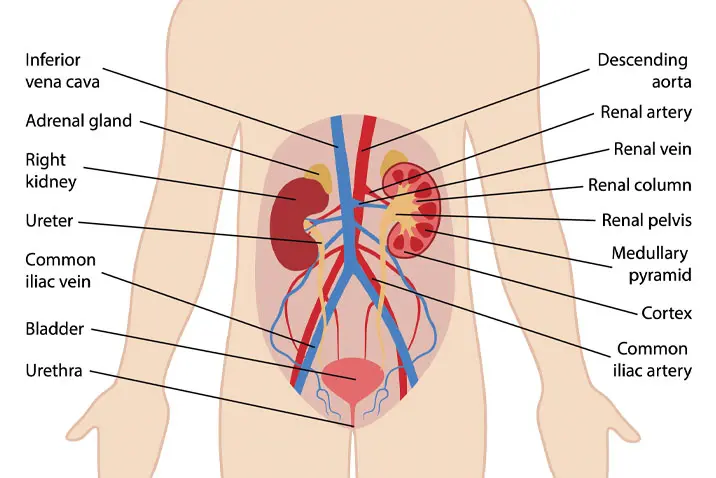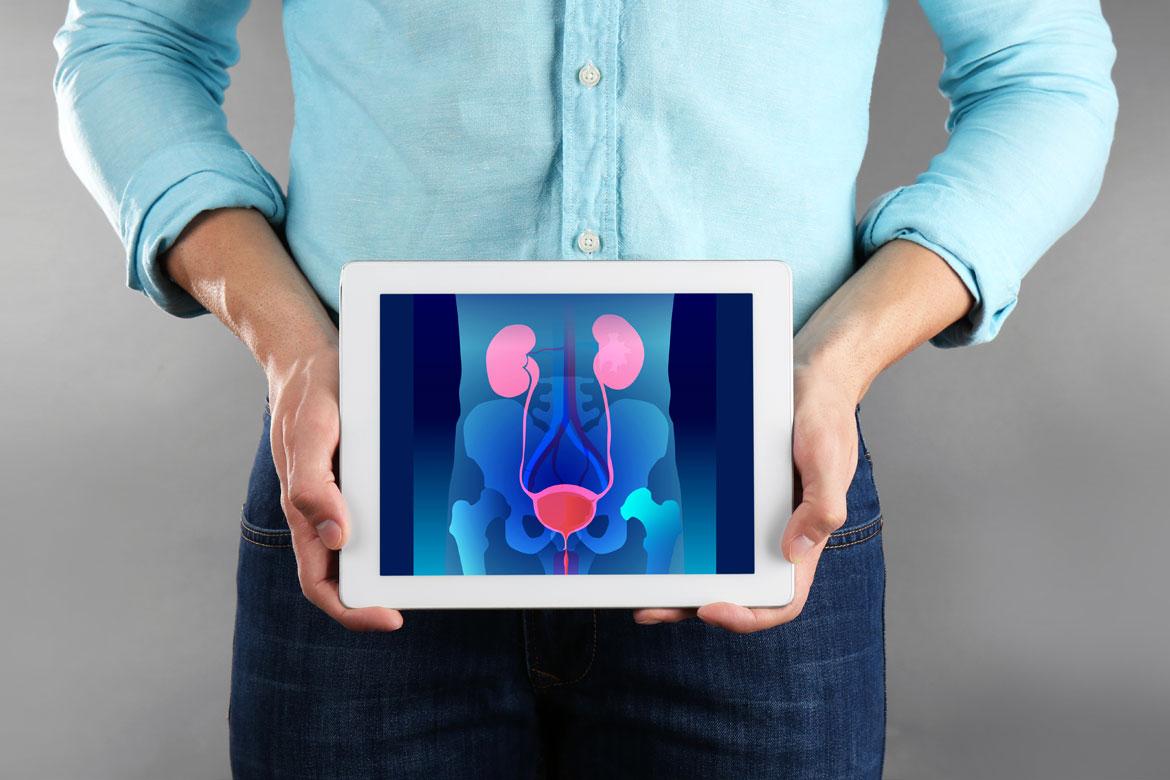-
-
Featured Care Areas

Urinary Tract Infection (UTI)
What is a UTI?
A urinary tract infection (UTI) is an infection of any part of the urinary system. The urinary system consists of kidneys, bladder, ureters and urethra. Each part serves a different function:
- Kidneys filter excess fluid, electrolytes and waste from the blood, while retaining the important elements.
- Ureters (small tubes attached to the kidneys) allow urine from the kidneys to pass into the bladder.
- Bladder holds the urine.
- Urethra (tube connected to the bladder) enables urine to leave the body when the bladder is full.
UTIs usually affects the bladder or the urethra first. Left untreated, the infection can spread to the ureters and the kidneys.
Types of UTIs
UTIs are classified according to the location of the infection:
- Cystitis (bladder infection) is a common type of UTI that involves inflammation of the bladder.
- Pyelonephritis (kidney infection) is a painful kidney infection caused by cystitis. In some cases, the bacteria from the bladder can travel up towards one or both kidneys.
- Urethritis (urethra infection) involves inflammation of the urethra. It is usually caused by an infection.
What are the symptoms of a UTI?
UTI symptoms vary, depending on your age and type of infection. Some people may not have any symptoms at all. The usual symptoms of UTI include:
- Back pain
- Fever and chills
- Cloudy urine or blood in the urine
- Frequent and urgent need to urinate
- Incontinence (inability to control urination)
- Pain in the ribs, abdomen or above the pubic bone
- Painful and burning sensation during urination
- Malaise (feeling generally unwell)
- Nausea and vomiting
What causes a UTI?
Urine is usually sterile, which means it does not contain bacteria, viruses or fungi.
A UTI can occur when a microorganism enters the urinary system through the urethra.
Most infections are caused by escherichia coli (E. coli), a digestive tract bacterium that lives in the colon (large intestine), and spreads to the urethra from the anus.
Other microorganisms, such as chlamydia and mycoplasma, can cause UTIs that are usually restricted to the urethra and the reproductive system. Since these microorganisms are sexually transmitted, both partners will require treatment when infections occur.
What are the risk factors for UTIs?
The risk for UTI increases if you:
- Have structural abnormalities of the urinary system, urinary stones and bladder obstruction.
- Have diabetes, as your urine contains higher amounts of sugar.
- Have sexual intercourse.
- Are a man with an enlarged prostate, as the condition makes it difficult to empty your bladder completely.
- Are a woman, as women have a shorter urethra, allowing bacteria to reach the bladder more easily. The risk is usually highest if you are sexually active or after menopause, due to the dry state of the urethra and vagina. 1 in 5 women develops a UTI during her lifetime.
- Are pregnant. Changes to your urinary tract and immunologic changes during pregnancy can increase your risk of UTI.
- Do not empty your bladder completely (urinary stasis).
What are the complications and related diseases of UTIs?
Left untreated, UTIs can lead to:
- Kidney damage if cystitis (bladder infection) is not treated and the infection spreads to the kidneys.
- Premature birth and hypertension (high blood pressure) if you have a UTI during pregnancy.
- Recurrent infections. The risk is higher if you experience more than 4 UTIs within a year.
- Complications in urethral narrowing in men, if you had recurrent urethritis.
- Septicaemia (serious blood infection) if the bacteria enters your bloodstream.
How do you prevent UTIs?
Preventive measures, especially in women with recurrent infections, can be taken to reduce the risk of developing UTIs. These include:
- Drinking plenty of water.
- Drinking cranberry juice or taking vitamin C to increase the acidity of your urine and reduce bacterial growth.
- Not holding your bladder for a long time and urinating when needed.
- Urinating immediately after sexual intercourse.
This page has been reviewed by our medical content reviewers.
Need help?
For enquiries, please call
+65 6250 0000 (Orchard) or +65 6898 6898 (Novena)
For appointment bookings, please WhatsApp
+65 8111 7777 (Orchard) or +65 8111 5777 (Novena)









